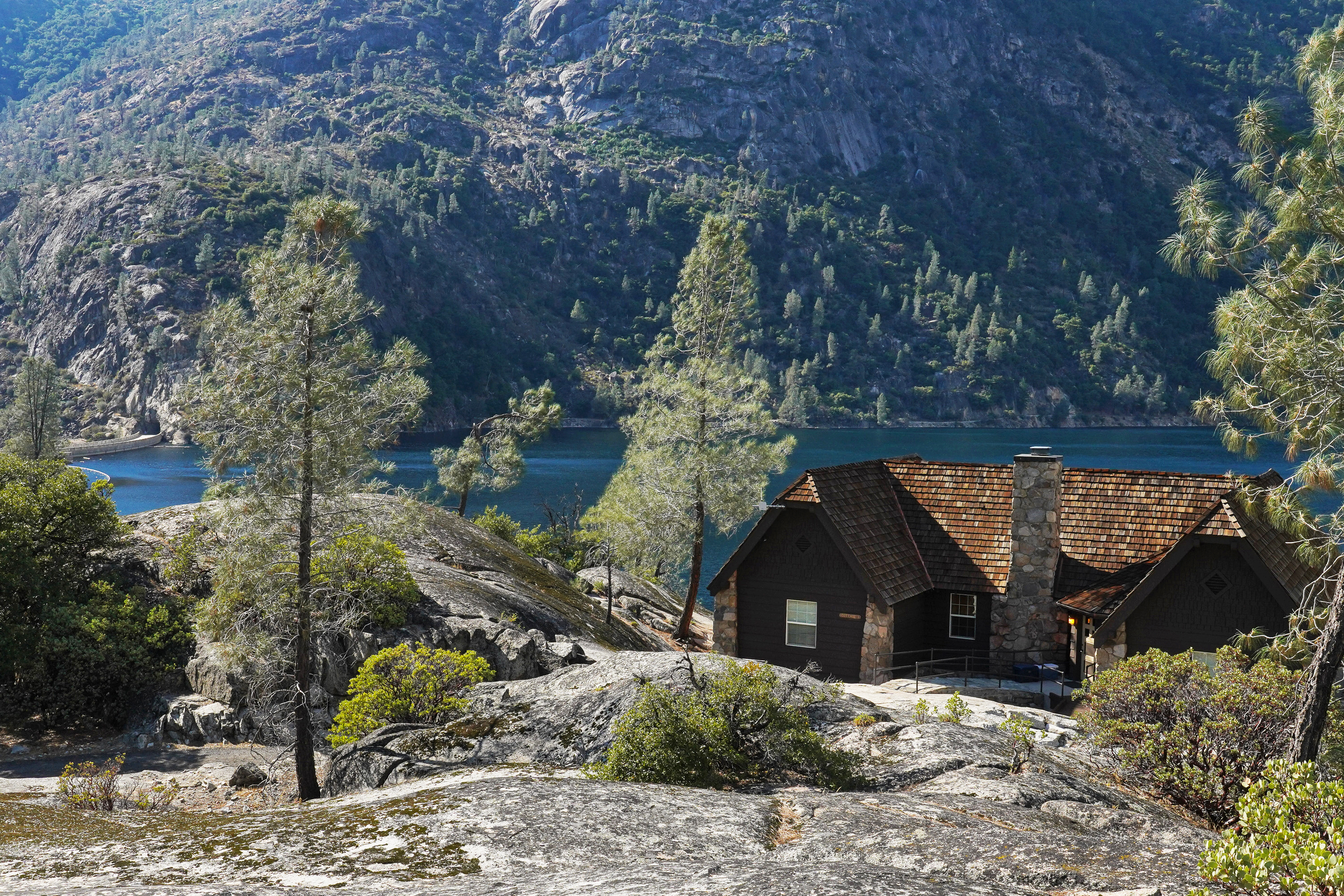Behold! The majestic Wapama and Tueeulala waterfalls of Hetch Hetchy Valley are bursting.
Strap in! You’ll want a backpack if you start getting snacky while ascending the many hiking trails.
Look there! Up to 262 different species of birds have been documented in Yosemite Valley, so keep those binoculars and cameras at the ready.
All of these outdoor adventures—and we didn’t even mention the fishing—could be yours during a stay at one of San Francisco’s city-owned cabins just a short stroll from the waters of Hetch Hetchy, one of the most awe-inspiring vacation spots in all of California. The catch: Only an exclusive group of elected officials and government employees can book the cabins.
In a special perk unavailable to the general public, San Francisco gives elected officials, employees of the city’s Public Utilities Commission, educational nonprofits and regional water officials exclusive access to lodgings near O’Shaughnessy Dam in the northwestern part of Yosemite National Park.
Gallery of 5 photos
the slideshow
Securing a vacation requires winning a lottery before reserving one of two cabins—one cottage accommodates five people; the other seven—or a “bunkhouse” that can fit as many as 16 people. Visitors are welcome May through October, and accommodations run $250 to $350 a night—a relative steal compared to the average price of rooms at the Ahwahnee Hotel near Yosemite National Park, where single-bed rooms start at $521.
The Standard obtained records of everyone who has stayed at the Hetch Hetchy cabins since the beginning of 2018, and the guest list shows that several supervisors, as well as Harlan Kelly—the former head of the city Public Utilities Commission who was convicted of fraud—have been frequent visitors. Since 2018, vacations to the grounds have netted the city more than $141,000.
The most common guests at the Hetch Hetchy cabins are employees of the city’s utilities commission and water board executives. In addition to vacation stays, they also conduct overnight “working tours” to visit the facilities, including the 430-foot-tall dam and three hydroelectric powerhouses. The 117-billion-gallon reservoir provides drinking water to about 2.5 million Bay Area residents, and people who have stayed at the overnight facilities told The Standard that getaways not only provide some serenity but also instill civic pride.
“It’s just an opportunity to get away and be part of nature and also to understand an important part of San Francisco’s history,” said Supervisor Ahsha Safaí, who has stayed at Hetch Hetchy a total of nine nights since 2018—tied for the most of any elected official. “You get to see the infrastructure every step of the way and kind of the genius behind it.”
Hetch Hetchy—the name is derived from the Miwok word hatchhatchie, which means “edible grasses”—is located about 180 miles east of San Francisco, and it has a complicated legacy. Following the 1906 earthquake and a water shortage that hampered efforts to douse the flames that eviscerated much of the city, many San Franciscans felt the construction of a Hetch Hetchy reservoir was vital to meeting the city’s water needs.
An epic water rights battle ensued until Congress officially signed off on the creation of a dam on federal land in 1913. Work on O’Shaughnessy Dam—named after the prickly chief engineer, Michael O’Shaughnessy—began in 1919, and the building of the guest cabins was “contemporaneous with the construction,” said Joseph Sweiss, a spokesperson for the city utilities commission. The dam was officially completed in 1938.
Few stories have been written about the cabins in recent years, making the vacation spot a bit of an open secret at City Hall.
“It is not a free perk, but it is definitely a perk,” said Supervisor Aaron Peskin, who most recently stayed two nights in the “chalet” cottage in November 2018.
Cabin amenities include linens, dishware, utensils and a barbecue pit, but guests should not expect cellphone, internet or TV reception. It’s recommended that guests bring food, drinks and a cooler, along with sunscreen, bug repellant, cameras and flashlights. Pets are banned, and guests are warned: “Please keep in mind bears, bats and rattlesnakes are common in this area.”
No cleaning fees are assessed, but guests need to plunk down a $100 deposit that will be forfeited if visits are canceled less than three weeks before a stay. City officials did not have any records of guests misusing the grounds or failing to pay for their stay within the required 30 days of a visit. However, damages and “extra housekeeping beyond the norm” can lead to additional charges and potentially being banned.
Mark Edwards, a bus driver who brings people to and from the site for working tours, is the top guest at the cabins since 2018 with a total of 29 nights. Ed Harrington, a former city controller and utilities commissioner, came in second with 21 nights at the cabins. His partner, Dan Scannell, also stayed a total of 21 nights.
Supervisor Rafael Mandelman, who represents the Castro, has arranged three visits for a total of nine nights over the years, often bringing a crew of friends that includes prominent members of the LGBTQ+ community. Last summer, state Sen. Scott Wiener joined a 15-person, four-day trip organized by Mandelman for a total cost of $2,100, according to city records.
“It’s an amazing example of a very successful giant infrastructure project that continues to benefit the city,” said Mandelman, who added that he and friends spend most of their time hiking. “It has been a privilege to be able to do this. I’m grateful for it. It’s been a nice thing.”
As for whether the cabins should be opened up to the public, none of the three supervisors contacted for this story sounded especially ready to sign off on the idea.
“That is how it has always been,” Mandelman said. “I can see a benefit, certainly, to making it available to [Public Utilities Commission] employees. It’s certainly nice for me as a member of the Board of Supervisors to do that.”
Lydia You contributed data analysis to this report.
